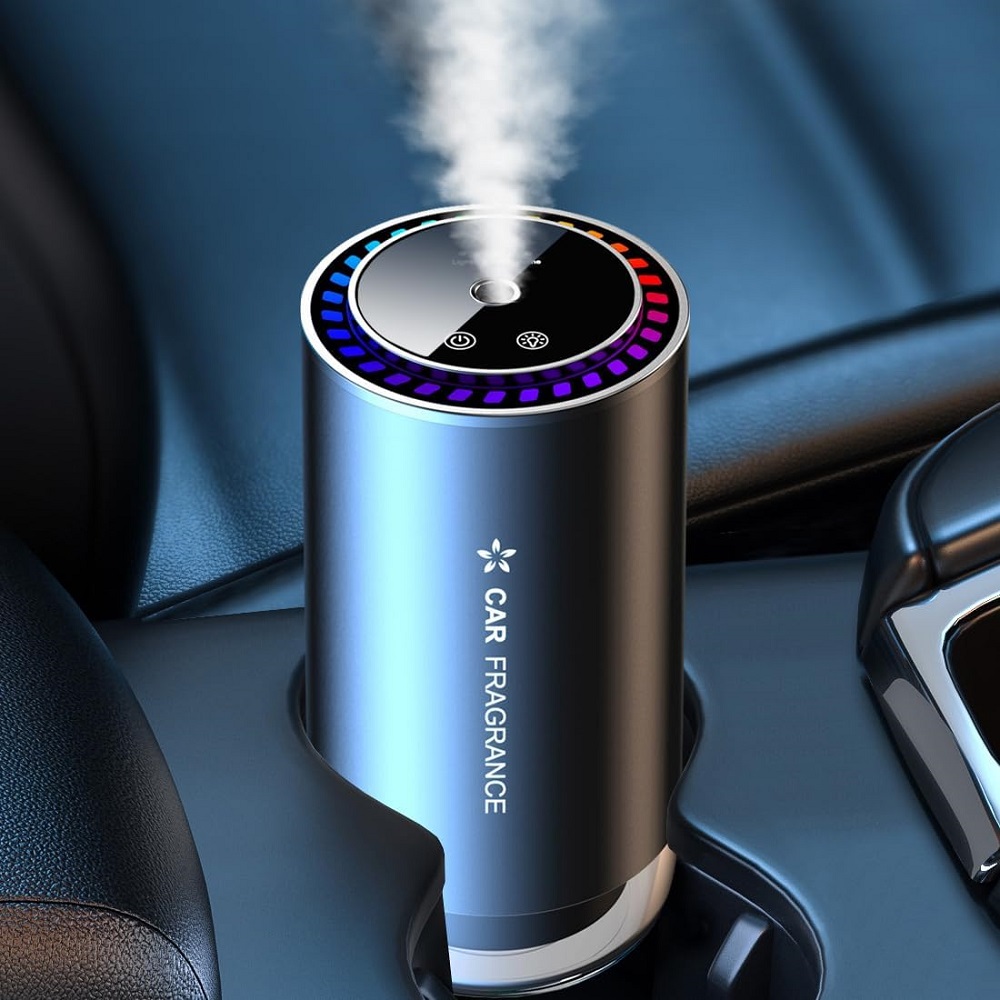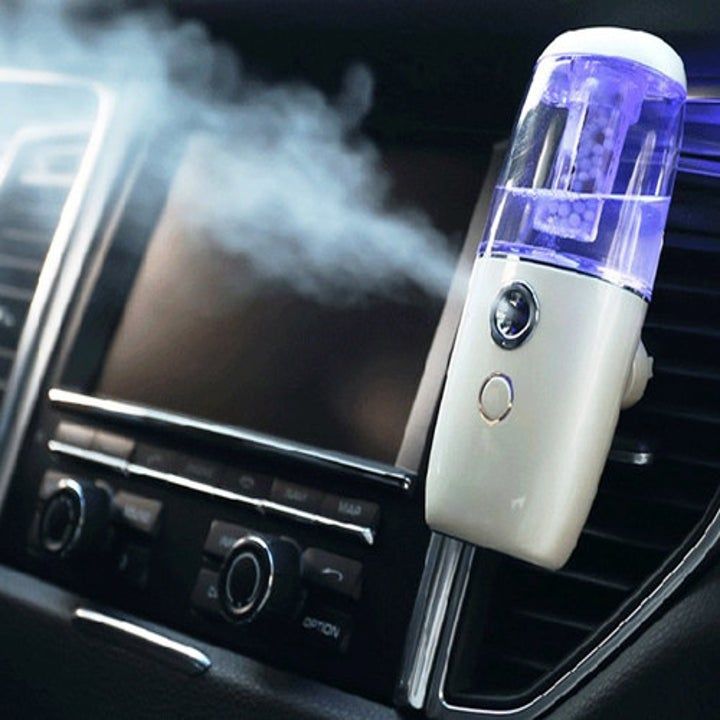The scent of rotten eggs is an unpleasant car smell that can occasionally permeate the interior of your vehicle. This distinct odor is not just a nuisance; it can also be indicative of underlying mechanical issues. Understanding the causes of this smell and how to address it is essential for maintaining your vehicle’s health and ensuring a pleasant driving experience. In this article, we will explore the reasons behind the rotten egg scent, its implications, and the steps you can take to eliminate it.
The Source of the Rotten Egg Smell
Sulfur and Its Connection to Gasoline
The scent of rotten eggs is often caused by sulfur compounds found in gasoline. Sulfur is a naturally occurring element that is frequently present in crude oil and its derivatives. When the oil is refined into gasoline, some sulfur compounds remain. Although refiners employ processes to minimize sulfur, it can still be found in small amounts in many fuels.
When gasoline is burned in the engine, sulfur can convert into hydrogen sulfide, a gas that emits a smell akin to rotten eggs. This phenomenon usually occurs when there is an incomplete combustion process within the engine. While most drivers may not notice this odor, those sensitive to smells can become alarmed when they detect the rotten egg scent during their journey.
Other Possible Sources of Odor
In addition to sulfur compounds, there are other potential sources of the rotten egg smell in your vehicle. The catalytic converter is a key component in your vehicle’s exhaust system. It converts harmful gases from the engine into less harmful emissions. If the catalytic converter is malfunctioning, it may not effectively perform this conversion, leading to an accumulation of sulfur compounds.
Other vehicle components, such as the fuel system, can also contribute to this unpleasant smell. Fuel leaks or issues with the fuel injectors can cause gasoline to evaporate and create an odor. As a result, it is essential to consider not only the engine but also fuel system health when identifying the source of the smell.

Identifying Symptoms and Causes
1. Understanding the Role of the Catalytic Converter
The catalytic converter plays a crucial role in your vehicle’s exhaust system. Its primary function is to reduce harmful emissions before they are expelled into the environment. If this component is damaged or malfunctioning, it can lead to an accumulation of sulfur compounds in the exhaust system.
When the catalytic converter is not functioning correctly, you may notice a noticeable change in performance. Symptoms such as decreased acceleration, engine sputtering, or rough idling can occur. Furthermore, a faulty catalytic converter can result in long-term damage to your vehicle, making it essential to address any issues as soon as they arise.
2. Checking for Engine Problems
Another possible cause of the rotten egg car smell is engine problems. If the air-fuel mixture is not properly balanced in the combustion chamber, it can lead to incomplete combustion. This situation can result in excessive emissions of unburned hydrocarbons, which can carry a sulfur scent.
Engine misfires can also lead to a similar issue. When cylinders fail to fire correctly, fuel can escape into the exhaust system, increasing the risk of odors. Other symptoms of engine problems include warning lights on the dashboard or a significant decrease in fuel efficiency. Addressing engine issues promptly can prevent further complications and costly repairs.

Assessing Fuel Quality
3. Quality of Gasoline
The quality of gasoline can significantly impact the presence of odors in your vehicle. Lower-quality fuels may contain higher levels of sulfur, leading to a stronger rotten egg car smell when burned. This is especially common in fuels that are not sourced from reputable suppliers. Regularly using high-quality gasoline can help minimize the chances of encountering strong sulfur odors.
While it might be tempting to fill up at cheaper stations, consistency with reputable brands can make a difference in your vehicle’s performance and odor issues. Quality fuels are often less likely to emit strong odors due to better refining processes that minimize the presence of sulfur and impurities.
4. Fuel Additives
Some fuel additives claim to improve combustion efficiency and reduce emissions. However, certain additives can have a negative impact if they contain high levels of sulfur. When using additives, it’s essential to ensure they come from a reliable brand and have been proven effective. Low-quality or inappropriate additives can lead to increased sulfur odors and cause long-term damage to vital engine components.
Being knowledgeable about the fuel you use is imperative. Checking labels and understanding the specific products being put into your vehicle can positively affect gas quality and the odor profile of your ride.

Addressing the Problem
5. Inspecting the Catalytic Converter
If you notice the rotten egg car smell, the first step is to inspect the catalytic converter. Look for signs of damage, such as cracks, dents, or rust. If you spot any issues, it may be time to replace the converter or seek professional help. A damaged catalytic converter can lead to poor engine performance and increase harmful emissions, affecting not only your car’s health but also the environment.
It is advisable to have a certified mechanic perform a thorough diagnostic check on your vehicle if you suspect catalytic converter failures. They can diagnose the problem accurately, providing recommendations on whether repairs, cleaning, or replacements are necessary.
6. Checking Engine Performance
Frequent monitoring of engine performance can help you catch any issues early on. Listen for unusual sounds, and pay attention to any warning lights or changes in acceleration. If you experience rough idling or stuttering while driving, consult a mechanic immediately. Addressing engine problems swiftly can minimize the risk of complications that lead to unpleasant odors.
Professional diagnostic scans can reveal any underlying engine problems, allowing for targeted repairs. Regular maintenance, including oil changes and air filter replacements, helps ensure the engine operates efficiently, minimizing the chances of sulfur odors.

Preventative Maintenance
7. Regular Vehicle Maintenance
A proactive approach to vehicle maintenance can go a long way in preventing the rotten egg car smell and other issues. Regularly scheduled maintenance checks help ensure that your vehicle runs smoothly. This includes oil changes, brake inspections, and emissions monitoring.
Building a relationship with a trusted mechanic can also enhance your vehicle’s longevity. Select a qualified professional who understands your vehicle’s specific needs and who can recommend appropriate maintenance schedules based on your driving habits.
8. Fuel System Cleaning
Consider scheduling routine fuel system cleaning as part of your maintenance routine. Cleaning the fuel injectors and the system as a whole can greatly reduce odors. Professional services are available that specialize in cleaning fuel systems, removing carbon deposits, and enhancing engine performance.
Keeping the fuel system clean not only helps in maintaining the quality of gasoline but can also contribute to better fuel efficiency and reduced emissions. This practice creates a smoother-running engine and minimizes any unpleasant odors associated with fuel-related issues.

Understanding Regulation and Compliance
9. Emissions Standards
Understanding emissions standards in your region can also help you address gasoline-related odors in your vehicle. Government regulations often determine the maximum permissible level of certain compounds found in gasoline. Keeping up with any changes in these regulations can help you make informed decisions regarding your fuel choices.
Additionally, being aware of emissions tests is essential. Many states require regular emissions testing for vehicles to ensure they meet required standards. Being proactive in understanding your vehicle’s compliance can prevent issues related to emissions and odors from occurring.
10. The Role of Manufacturers
Automakers often issue technical service bulletins (TSBs) related to specific vehicle problems, including engine performance and malodorous emissions. These bulletins can inform owners about common issues that may arise and offer potential solutions. Staying informed about announcements from your vehicle’s manufacturer can help you take ownership of your car’s health.
Checking for any recalls or service campaigns can also be beneficial. If your car has been identified as having a problem, acting promptly to resolve any issues will help maintain optimal performance and protect your investment.
Conclusion
Recognizing and Addressing Issues Early
In conclusion, the rotten egg car smell in your Chevrolet Malibu can be a clear indicator of potential engine or fuel-related issues. Understanding the sources of this unpleasant odor is critical for addressing problems before they escalate. By recognizing the causes, routines, and recommended practices associated with gasoline and your vehicle, you can protect your car’s performance and longevity.
Commitment to Knowledge and Maintenance
When you commit to maintaining your vehicle, you enable yourself to enjoy the benefits of a smooth ride and reliable performance. Regular inspections, good fueling practices, and adherence to maintenance schedules all contribute to your car’s overall health. By staying informed about your vehicle’s needs, you can prevent problems that result in unwanted odors and ensure a pleasant driving experience.
As gasoline technology continues to evolve and environmental regulations become stricter, consumers must adapt their practices accordingly. Embracing knowledge about fuel choices, vehicle maintenance, and environmental impacts can positively influence your driving experience and contribute to a more sustainable future. Ultimately, taking the necessary steps for preventing rotten egg odor in vehicles and understanding its causes will lead to a safer, more enjoyable journey on the road ahead.
Leave a Reply